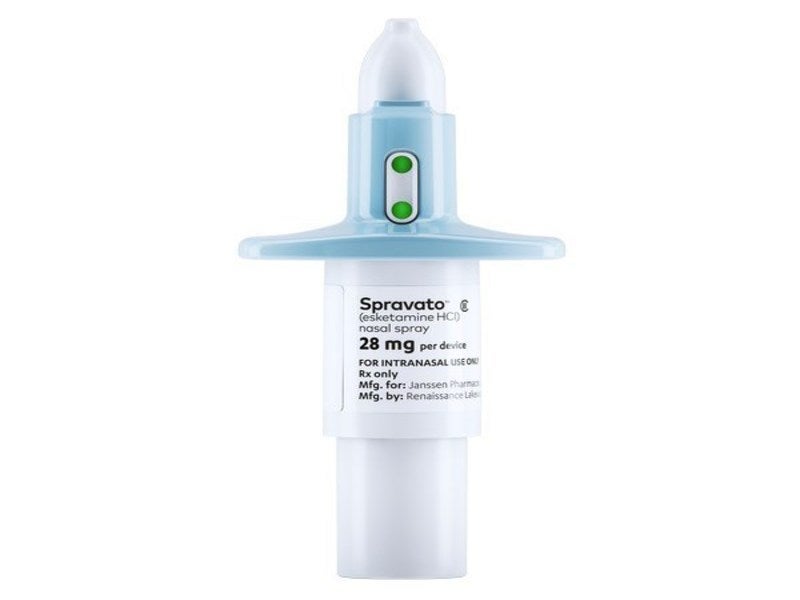
Johnson & Johnson subsidiary Janssen Pharmaceutical has obtained approval from the US Food and Drug Administration (FDA) for its Spravato (esketamine) nasal spray to treat adults with major depressive disorder (MDD).
The medication is indicated for use in conjunction with an oral antidepressant. Patients who did not experience adequate response to at least two different antidepressants are eligible for treatment with the Spravato nasal spray.

Discover B2B Marketing That Performs
Combine business intelligence and editorial excellence to reach engaged professionals across 36 leading media platforms.
Esketamine is chemically similar to anaesthetic ketamine, which is often abused. In addition, the drug is associated with the risk of suicidal thoughts and behaviours, sedation and difficulty with attention.
To address these serious adverse outcomes as well as the potential for abuse and misuse, the drug is being released under a Risk Evaluation and Mitigation Strategy (REMS) via a controlled distribution model.
Spravato can be self-administered by patients only at a certified doctor’s office or clinic with guidance from a health care provider, who will observe the user for at least two hours after dosing.
Janssen noted that the drug is the first to use a new mechanism of action in decades for MDD treatment. Spravato targets the N-methyl-D-aspartate (NMDA) receptor in the brain.

US Tariffs are shifting - will you react or anticipate?
Don’t let policy changes catch you off guard. Stay proactive with real-time data and expert analysis.
By GlobalDataUnlike existing MDD therapies that usually take weeks to work, the new drug is said to exhibit fast action.
Janssen Research & Development global head Mathai Mammen said: “Spravato has the potential to change the treatment paradigm and offer new hope to the estimated one-third of people with major depressive disorder who have not responded to existing therapies.”
The company evaluated the drug in a Phase III clinical trial programme involving a total of more than 1,700 adult participants.
In a short-term trial, patients who used the nasal spray combination with an oral antidepressant experienced statistically significant improvement in depression symptoms at four weeks, compared to those who received a placebo plus an oral antidepressant.
However, two other short-term studies did not meet the pre-specified statistical tests for effectiveness.
In a long-term maintenance-of-effect study, patients in stable remission who continued to use Spravato combination were 51% less likely to relapse than those who maintained the placebo regimen.
The most common Spravato-related side effects observed during the trials were disassociation, dizziness, nausea, sedation, vertigo, hypoesthesia, anxiety, lethargy, increased blood pressure, vomiting and feeling drunk.




